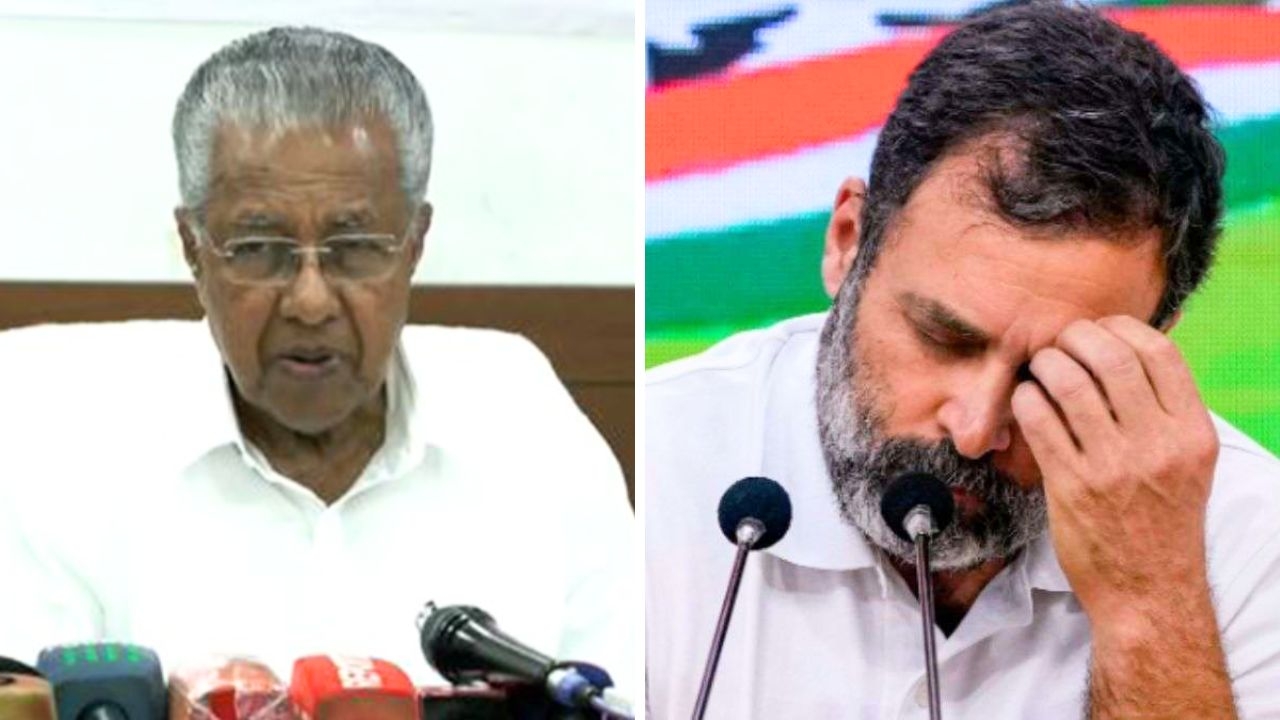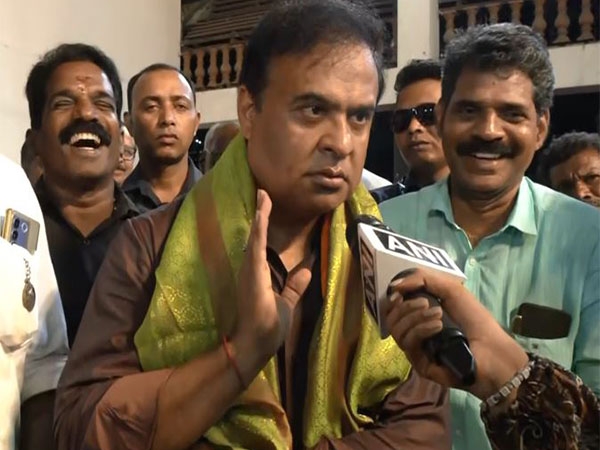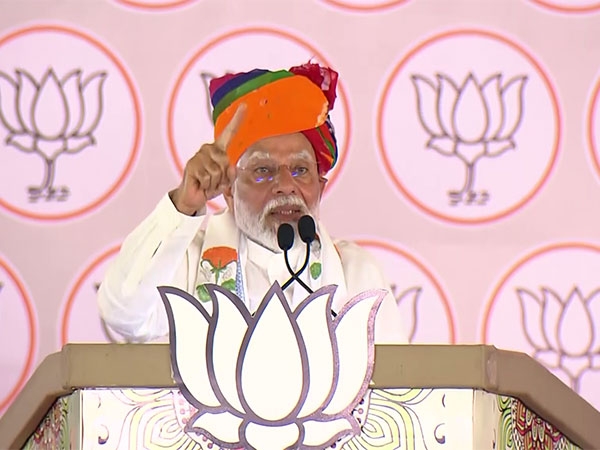'Landmark' or 'unconstitutional': reading the SC verdict on NJAC Act
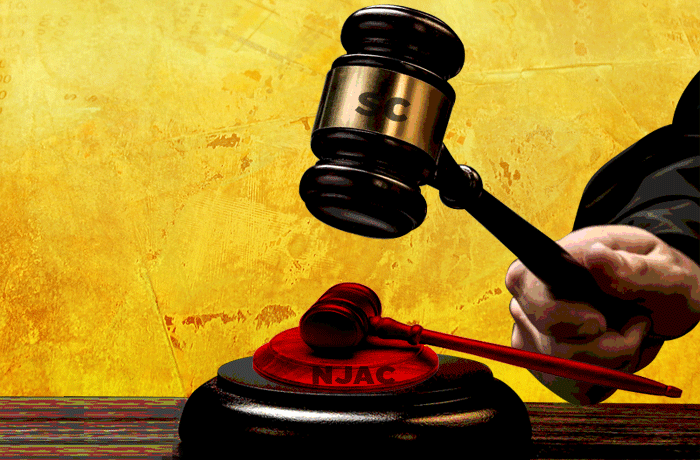
The verdict
- Supreme Court has termed the Centre\'s National Judicial Appointments Commission as \"unconstitutional\"
- The two-decade old collegium system will continue
- Constitutional experts are divided on the matter
The divide
- Gopal Subramanium praised SC for asserting the judiciary\'s independence
- Subhash C Kashyap says that the collegium system can create a constitutional crisis
More in the story
- What are the chances of a clash between executive and judiciary?
- Should the executive have any say in the functioning of the judiciary?
The Supreme Court delivered a historic verdict on Friday, one that affects its own functioning. It ruled that the National Judicial Appointments Commission (NJAC), being pushed by the government, was unconstitutional. The two decade old collegium system will continue, the Supreme Court said.
The rationale being given for the NJAC was that it would introduce more transparency in the appointment of judges as it would include the opinions of the Prime Minister, Leader of the Opposition in the Lok Sabha and two eminent persons.
Also read - Ram Jethmalani: Modi and his ministers should resign after this judicial slap
The argument against it was that the current collegium system made judiciary more independent.
Catch spoke to legal and constitutional experts on how they saw the Supreme Court's judgment. While some called it unconstitutional, others saw it as a 'great move towards transparency'.
Gopal Subramaniam, former Solicitor General of India, called it a 'monumental judgment' and said Supreme Court had reinstated credibility through its judgment.
"The judgment shows the willingness of the Supreme Court to bring in more transparency in the procedures. I think it is indeed a great day for the Supreme Court because it will reinsure its credibility in the minds of the people that it is strong enough to establish the independence of the judiciary."
On the question of the follies of collegium system, which isn't followed in most countries around the world, Subramanium said India's case was singular.
"There have been some good judges appointed by the collegium and there have been appointments that have raised concerns. But when all is said and done, I personally feel that Justice JS Khehar's call for introspection and suggestions to improve the system is a great move."
A possible clash between executive and judiciary
Constitution expert Subhash C Kashyap, who worked as Secretary-General of the Lok Sabha, calls the judgment 'unconstitutional'.
"The judgment, as reported, is unconstitutional. It is most unfortunate. When the court says that NJAC amendment is unconstitutional, it should know that the point of reference is the Constitution. The SC should say where it violates any provision of the constitution."
He considers the question of judicial independence through collegium system "a phony concept". "It is judicial creativity. It is not part of the Constitution."he said.
An important question is: what will happen if the PM doesn't agree with a particular appointment?
Subhash Kashyap's argument against the collegium system is that democracy and constitutionality cannot be maintained if one of the organs of the state is in direct confrontation with the others.
"Now supposing the suggestions for appointments made by the judiciary are not accepted by the executive, after all appointments are made by the executive and not the judiciary, what will happen then? The judiciary needs the executive to implement its decisions. What if the prime minister refuses? In such a case, constitutionality cannot survive."
There are experts who claim that enough safeguards have been provided in the Constitution to maintain independence of judiciary.
If so, then there is no need to tamper with the existing system.
According to former Additional Solicitor General of India, Sidharth Luthra,"The Constitution provides certain safeguards for judicial appointments and puts them at par with the constitutional appointees like the President. Although a President can be impeached by the parliament but a judge cannot be removed except on very narrow terms, that too with a motion in Parliament and an inquiry as per the 1967 act."
Also read - #NJAC : Let's turn the clock back to pre-collegium days
Amarjit Singh Chandhiok, another former additional Solicitor General of India says that with the the interference of the judiciary will make matters worse, because of growing intolerance and communal polarisation in the country.
"The amendment was uncalled for, because if in the appointment process the whole discretion was of the executive then we'd see a situation worse off than today. The intolerance in the country is going from bad to worse. How can give the judiciary to an executive which wants to look at a particular community alone?"
First published: 17 October 2015, 9:04 IST
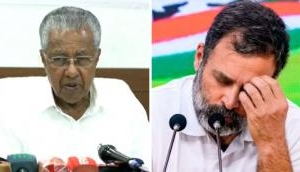
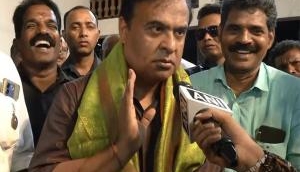
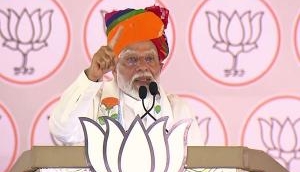


![BJP's Kapil Mishra recreates Shankar Mahadevan’s ‘Breathless’ song to highlight Delhi pollution [WATCH] BJP's Kapil Mishra recreates Shankar Mahadevan’s ‘Breathless’ song to highlight Delhi pollution [WATCH]](http://images.catchnews.com/upload/2022/11/03/kapil-mishra_240884_300x172.png)

![Anupam Kher shares pictures of his toned body on 67th birthday [MUST SEE] Anupam Kher shares pictures of his toned body on 67th birthday [MUST SEE]](http://images.catchnews.com/upload/2022/03/07/Anupam_kher_231145_300x172.jpg)


